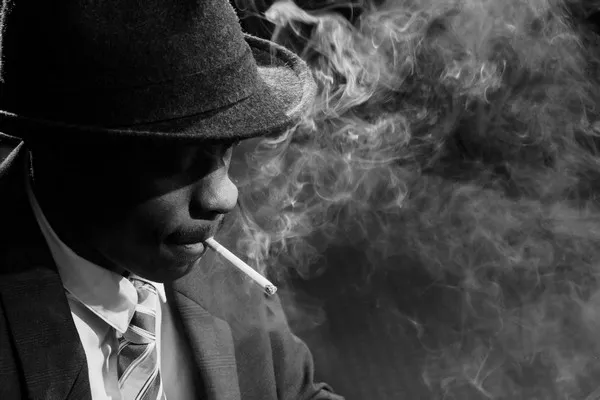In the vast and ever-evolving realm of Hollywood, the quest to determine who holds the title of the “King” is a topic that perpetually stirs discussion and speculation. Over the years, numerous iconic figures have emerged, leaving an indelible mark on the entertainment industry. From the Golden Age to the modern era, the throne of Hollywood has seen various claimants, each with their unique contributions and legacies. Unraveling the enigma of the King of Hollywood involves traversing through decades of cinematic history and examining the multifaceted facets of stardom and influence within the entertainment capital of the world.
The Golden Age and the Pioneers
The Golden Age of Hollywood ushered in a constellation of stars, each vying for the coveted title of the King. During this epoch, luminaries such as Clark Gable, Humphrey Bogart, and Cary Grant stood tall, commanding the silver screen and capturing the hearts of audiences worldwide. Clark Gable, often referred to as the “King of Hollywood,” epitomized the suave and charismatic leading man, starring in timeless classics like “Gone with the Wind” and “It Happened One Night.” His undeniable charm and on-screen presence solidified his status as a Hollywood icon. Yet, the question lingers: Was Gable truly the definitive King of Hollywood, or did other luminaries of his era share the throne?
The Legends and Their Legacy
As the Golden Age waned, a new wave of actors ascended, leaving an enduring legacy that reshaped the landscape of Hollywood. Marlon Brando, widely regarded as one of the greatest actors in cinematic history, revolutionized the craft with his method acting approach. His performances in “A Streetcar Named Desire” and “On the Waterfront” showcased unparalleled depth and intensity, earning him widespread acclaim. Brando’s influence extended beyond the screen, impacting the very essence of acting. However, while Brando’s brilliance remains undeniable, the debate over the King of Hollywood persists.
The Charismatic Maverick: Paul Newman
Enter Paul Newman, the epitome of talent, charm, and versatility. With a career spanning over five decades, Newman left an indelible mark on Hollywood. His roles in classics like “Cool Hand Luke” and “Butch Cassidy and the Sundance Kid” showcased his ability to portray a diverse range of characters with finesse. Newman’s charisma and philanthropic endeavors off-screen further solidified his revered status. Despite his undeniable impact, determining if he was the definitive King of Hollywood remains a subject open to interpretation.
The Maverick Filmmaker: Steven Spielberg
Shifting the focus from actors to the creative forces behind the camera, Steven Spielberg emerges as a titan in the film industry. A visionary director and producer, Spielberg redefined storytelling with groundbreaking films like “Jaws,” “E.T. the Extra-Terrestrial,” and “Schindler’s List.” His unparalleled ability to craft compelling narratives and capture the imagination of audiences worldwide solidifies his place in Hollywood history. Spielberg’s influence extends beyond box office success, shaping the very fabric of contemporary cinema. However, does his directorial prowess elevate him to the stature of the King of Hollywood?
The Modern Era and the Evolution of Stardom
As Hollywood transitioned into the modern era, the dynamics of stardom underwent a transformative shift. The emergence of actors like Tom Hanks, Leonardo DiCaprio, and Brad Pitt redefined what it means to be a leading man in contemporary cinema. Tom Hanks, known for his exceptional range and emotional depth, delivered stellar performances in iconic films such as “Forrest Gump” and “Philadelphia,” earning him widespread acclaim and multiple Academy Awards. Leonardo DiCaprio’s meteoric rise to fame and his collaborations with visionary directors have solidified his status as a preeminent actor of his generation. Brad Pitt’s versatility and magnetic on-screen presence have garnered accolades and adulation from audiences and critics alike. However, amidst this constellation of talent, the question remains: Who holds the scepter as the King of Hollywood in the modern age?
The Cinematic Marvel: Dwayne “The Rock” Johnson
In the ever-evolving landscape of Hollywood, an unconventional contender for the throne has emerged—Dwayne “The Rock” Johnson. Transitioning from a professional wrestler to a Hollywood superstar, Johnson’s ascent to cinematic prominence has been nothing short of remarkable. With a string of box office hits and a charismatic persona, Johnson has captured the hearts of audiences globally. His work ethic, coupled with a diverse range of roles, has cemented his status as a formidable force in the industry. Yet, while Johnson’s star power continues to soar, the debate over the King of Hollywood persists, prompting contemplation on the evolving nature of stardom.
The Multifaceted Nature of Stardom and Influence
Defining the King of Hollywood transcends mere box office numbers or critical acclaim. It encapsulates an amalgamation of talent, influence, cultural impact, and the ability to resonate with audiences across generations. The criteria for such a title are subjective, evolving with the shifting tides of the entertainment industry. It encompasses the ability to transcend boundaries, leaving an enduring legacy that shapes the trajectory of Hollywood itself.
Conclusion: The Enduring Enigma
The quest to anoint the definitive King of Hollywood remains an enigma—a captivating narrative that unfolds across generations, traversing through the annals of cinematic history. From the Golden Age stalwarts to the modern-day luminaries, each era has borne witness to titans who have left an indelible mark on Hollywood. Clark Gable, Marlon Brando, Paul Newman, Steven Spielberg, and a myriad of contemporary stars have all contributed to the tapestry of Hollywood’s legacy.
Yet, the elusive nature of stardom and the ever-evolving dynamics of the entertainment industry preclude a definitive proclamation. The King of Hollywood is not a singular entity but an ever-shifting paradigm—a testament to the multifaceted nature of talent, influence, and cultural resonance.
As Hollywood continues to evolve, ushering in new talents and narratives, the quest to determine the King of Hollywood will persist—an eternal debate that fuels the intrigue and allure of Tinseltown, perpetuating the legacy of those who have graced its illustrious stage throughout the ages.


























